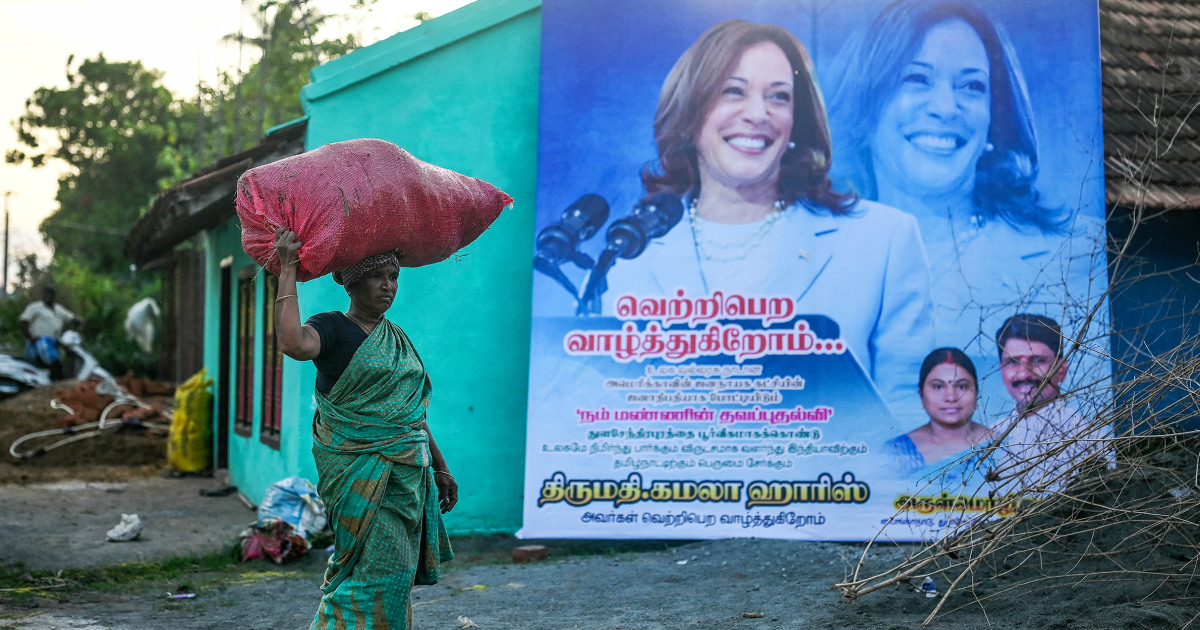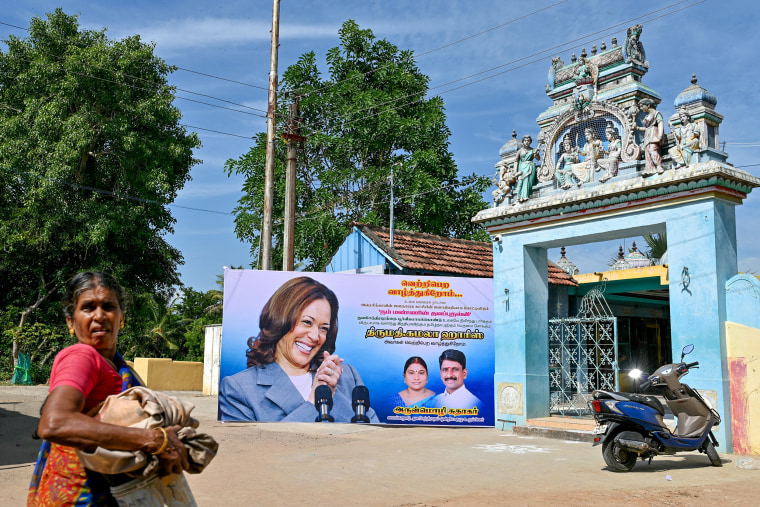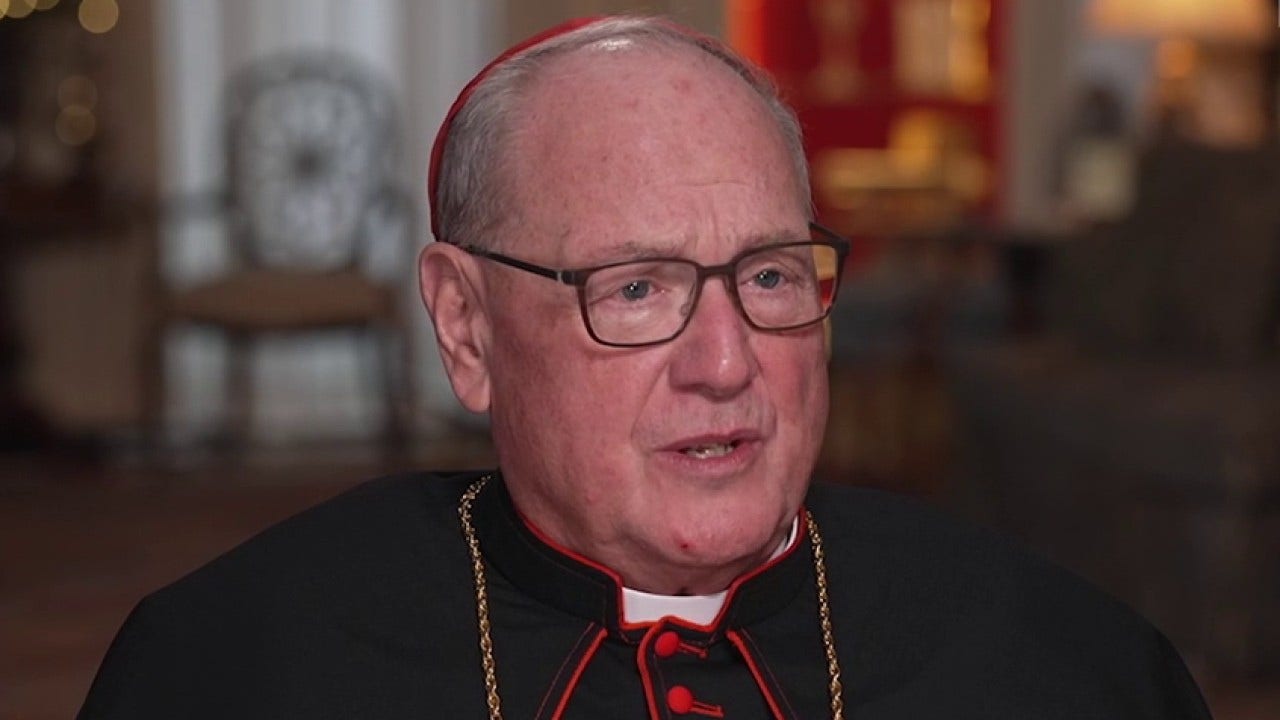World
Harris’ ancestral village in India cheers for ‘daughter of this land’

If they could vote for her, they would.
The people of Thulasendrapuram, a village in southern India that calls Kamala Harris its own, knew little about her until she became the U.S. vice president. Now they display banners of Harris, whose maternal grandparents were born in the village, and are planning celebrations for if and when the Democratic nominee wins the presidential election.
“We are very proud of her,” said Kadir Kathiravan, who owns a printing press in the village of several hundred people, where a billboard shows a smiling Harris and refers to her as a “daughter of this land.”
The village in Tamil Nadu state had already celebrated in 2021 when Harris became the first woman, first Black American and first Asian American to be sworn in as America’s second in command. But her run for the top job is stirring even more excitement in the village and among Indian Americans — a reflection of the pride that India, as well as its vast diaspora, is feeling over its burgeoning economic and geopolitical clout.
“This is really a moment where in just about every sector of American life, we have found success,” said Chintan Patel, executive director of the voter engagement organization Indian American Impact.
“Now we are waking up to this idea that when it comes to the governmental space, our values are important too,” he said. “And that they’re American values.”
Harris’ mother, Shyamala Gopalan, was born and raised in what was then known as Madras (now Chennai), the capital of Tamil Nadu. When she was 19 years old, she was accepted to a master’s program at the University of California, Berkeley, where she met Harris’ Jamaican father, Donald Harris. The two foreign graduate students married in 1963, the year before Harris was born, and divorced in 1971.
Though Harris, 59, grew up in the United States, her family maintained its ties with India and she has not shied away from bringing them up.
“India is a very important part of my life,” she said during a state visit to Washington last year by Indian Prime Minister Narendra Modi.
The Harris campaign did not respond to a request for comment.
Harris said during the Modi visit that when she and her younger sister Maya were growing up, her mother would take them to India “pretty much every other year” to visit their grandfather, P.V. Gopalan, a retired public service officer whom Harris credits with inspiring her own journey in politics.
“She wanted us to understand where she had come from and where we had ancestry,” Harris said in 2020 of her mother, a breast cancer researcher who died in 2009.
Her mother’s embrace of family history was also behind a story that has inspired one of the most popular memes about Harris.
In a speech last year, Harris said her mother “would give us a hard time sometimes and she would say to us, ‘I don’t know what’s wrong with you young people. You think you just fell out of a coconut tree? You exist in the context of all in which you live and what came before you.’”
The expression is instantly recognizable in southern India, where coconuts are a leading export.
After her mother’s death, Harris scattered her ashes on the beach in Chennai where she used to stroll with her grandfather.
Though Harris has not made any official visits to India as vice president, the villagers in Thulasendrapuram said it was only natural for them to support her. They did so during and after the 2020 election as well, holding up portraits of her and setting off fireworks when she was sworn in as vice president.
“We are very grateful because this small dot nobody knew about has now become worldwide famous,” said N. Krishnamurthy, 79.
Krishnamurthy, a retired bank manager, said he has been regularly fielding interview requests since Harris was elected vice president, and has become somewhat of a local expert on all matters Harris.
Though Harris’ family home is no longer standing, Krishnamurthy said, her name is etched on a stone tablet at the village’s 300-year-old main temple, recording a 2014 donation a relative made in her name for 5,000 rupees ($60).
While Harris is the first Indian American to appear on a major presidential ticket, Patel said a seismic shift is underway at every level of American politics. Twelve years after Rep. Ami Bera, D-Calif., became the first Indian American elected to Congress, there are now five members of the self-described “samosa caucus,” named after the popular north Indian snack: Reps. Ro Khanna, D-Calif.; Pramila Jayapal, D-Wash.; Raja Krishnamoorthi, D-Ill.; Shri Thanedar, D-Mich.; and Bera.
Besides Harris, other Indian Americans have also run for president, including Vivek Ramaswamy and Nikki Haley in this year’s Republican primary. Usha Chilukuri Vance, the wife of Republican vice presidential nominee JD Vance, is also of Indian heritage.
“We’re seeing more and more Indian Americans stepping up and running for school board races, city council races, state legislature races, statewide races,” Patel said.
The Indian diaspora in the U.S. numbers almost 5 million, or more than 1% of the U.S. population, and tends to vote Democratic, according to the Pew Research Center. Many South Asian voters have already mobilized in support of Harris, whose first name means “lotus” in the classical South Asian language Sanskrit and has inspired the slogan “Lotus for POTUS.”
That could make a difference for Harris in battleground states as she looks to beat former President Donald Trump, the Republican nominee. For example, the number of Indian Americans in Georgia, Arizona and Pennsylvania is bigger than President Joe Biden’s margin of victory in each of those states in 2020.
Trump has already sought to raise questions about Harris’ racial identity. Last month, he falsely claimed that Harris had previously promoted only her Indian heritage but more recently “happened to turn Black,” in an attack that mixed-race voters say is painfully familiar.
Noting that Harris is both Indian American and Black, Krishnamurthy, the villager, said, “We don’t expect anything from her. What we want is full support for India.”
Likewise, Patel said he’d like to see Harris “using her South Asian heritage in a way that understands the nuances of India.”
“But having a heritage is no automatic reason to give you insights,” he added.

Indeed, there is little to suggest that Harris, who has had little involvement in India policy, would make meaningful changes to the U.S.-India relationship as president.
“She just doesn’t have a foreign policy pedigree,” said Samir Puri, a former British diplomat and the author of “Westlessness: The Great Global Rebalancing.” “Most of her ability has been demonstrated in domestic, judicial and in the party political arena.”
Meanwhile, the villagers in Thulasendrapuram are anxiously awaiting the results of the November election.
“We are offering our prayers and if she is elected we will celebrate by setting off firecrackers and giving away sweets,” Krishnamurthy said. “If she comes, we will welcome her here.”










